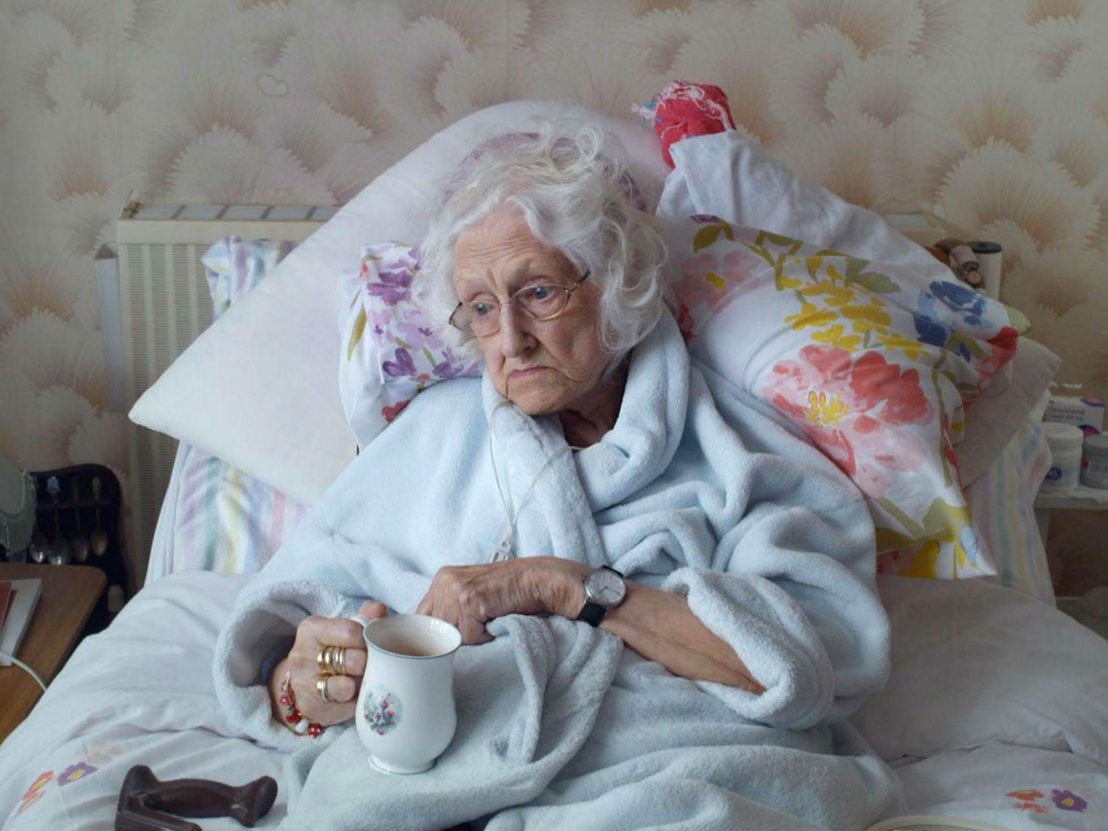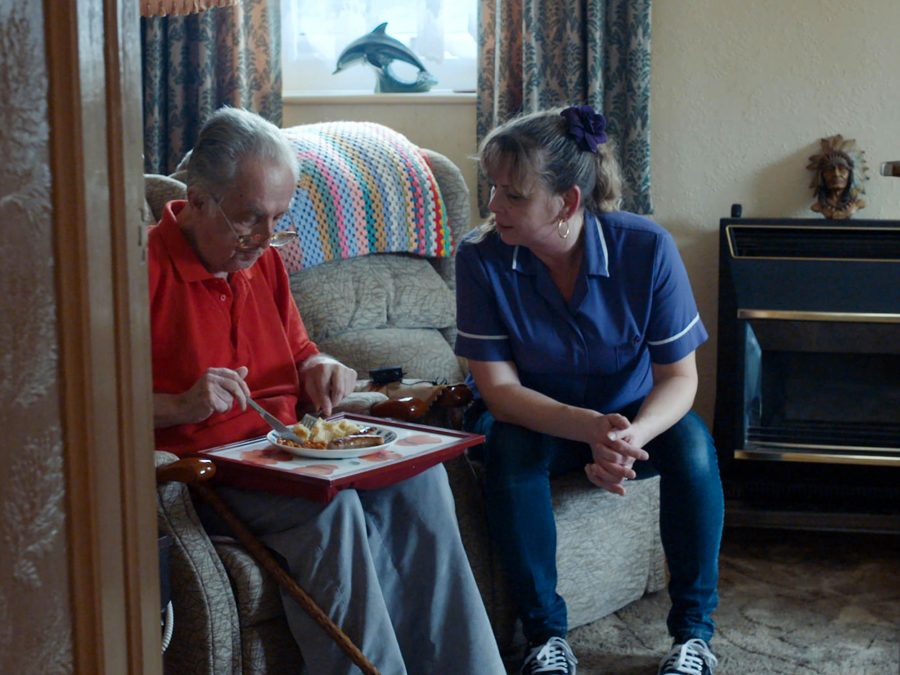
“Time is a peculiar thing. It’s just a way of chopping up a period so that we know where we are, and when we are,” muses Alan, one of the four individuals facing end-of-life situations in Steven Eastwood’s Island, a documentary that sensitively, empathetically, and concentratedly examines what it means to face the reality of mortality. It is easy to speak as philosophically as Alan does when time seems ample, but when death is near the same sort of line of thought starts to sound braver. “There is no time but the now,” he adds. “The eternal now is the only thing that exists.” Death acts on its own sense of time, yet few adjust to it so effectively.
As Island shows, towards the end of life time can seem more elastic. Life feels long, until it is cut short; and as much as we may try, it is something that we don’t really hold all that much control over. Set on the Isle of Wight, the film hears directly from those with terminal diagnoses, charting their journeys and addressing the experience of living with an awareness of the imminence of death, as well as – more unusually – depicting its arrival. Indeed, Alan’s refusal to be morbid in the face of his own mortality is one of many unexpected ways in which the film subtly works to shift the viewer’s expectations over how this reality should, or rather could, be represented.
Dealing with death is far from unprecedented in non-fiction film, and Island is one of several recent films focusing on acts of palliative care. (Just in the last year, Wang Bing’s Mrs Fang, John Bruce and Pawel Wojtasik’s End of Life, Erick Stoll and Chase Whiteside’s América have all focused, unsparingly and largely unsentimentally, on end-of-life situations.) Island is unique in one aspect. It is the only film of the recent few that captures the moment of death itself.

The film features a single extended sequence in which Alan’s death is transmitted as it occurs. In a scene that is less shocking than it may sound, Eastwood films Alan’s face from a fixed position, in close proximity, never averting his gaze. Eyes closed, mouth agape, Alan lies calm and still while drawing in his final breaths. Each gasp is clearly visible forming a rhythm of its own, this generally unseen action resulting in the creation of a new sense of time. The eternal now, seen one breath at a time.
This passing proves to be not such an awful thing to witness after all, and this sequence is not necessarily even the most uncomfortable in the film. The most moving moment arrives as the film’s youngest subject, Jamie, barely 40 and battling a particularly aggressive form of cancer, throws a fundraising party for friends. A joyous occasion that counters the misery that Jamie’s prognosis tends to be associated with, while watching in on it, Eastwood captures a rupture. As Jamie pauses a moment to catch a breath, it all becomes too much. As Mark Ronson and Bruno Mars’ ‘Uptown Funk’ blasts out incongruously in the background, Jamie’s expression slowly drains all of its remaining vitality. Otherwise positive, the cost of his bravery here becomes visible on his face.
It is these moments that make the film. As uncomfortable as it may be to see what usually goes unseen, it is often the most private moments that are the most humanising. A strained expression, a wayward glance, a last hug, a bed-bound bath, or a final breath. Death has always been a taboo subject, and what Eastwood chooses to film and what not to film is likely to be a point of contention. It is to the director’s credit, however, that there is nothing exploitative or provocative about Island, other than the questions that it raises, namely why Western culture is so terrified of death; of approaching it, addressing it, accepting it and depicting it.
One of the most repeated mantras is that death is one of life’s few certainties. We are born and we will die. Island probes into this relatively uncharted territory with great intelligence and sensitivity, and shows that while loss is painful and grief can be devastating, death itself – for all its grim inevitability – isn’t necessarily so horrible. Caregiving is tender, and filmmaking, when handled equally tenderly, can be an act of care.
Ahead of the film’s theatrical release on 14 September, see director Steven Eastwood and producer Elhum Shakerifar give a masterclass on ‘The Ethics of Seeing’ at Open City Documentary Festival in London on 6 September, where América also screens on 7 September.
Published 19 Aug 2018

Two prizewinning films at the 2017 Locarno Film Festival – Mrs Fang and 3/4 – attempt to do just that.

The great Jean-Pierre Leaud is at his comi-tragic best in this humanist portrait of a dying monarch.

By Lena Hanafy
Embrace shows the widespread damage societal pressures are having on image perception.